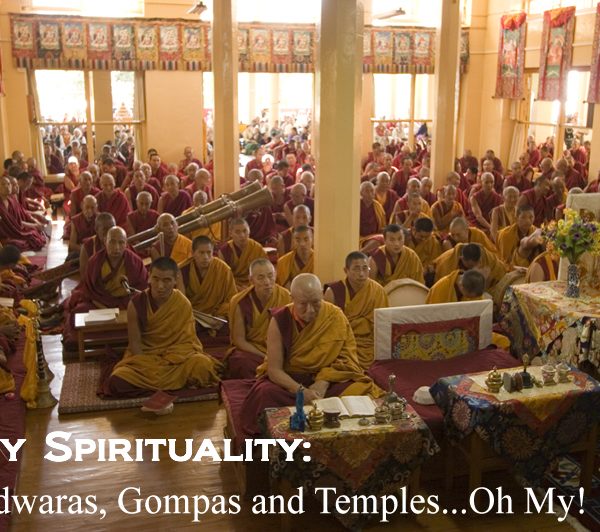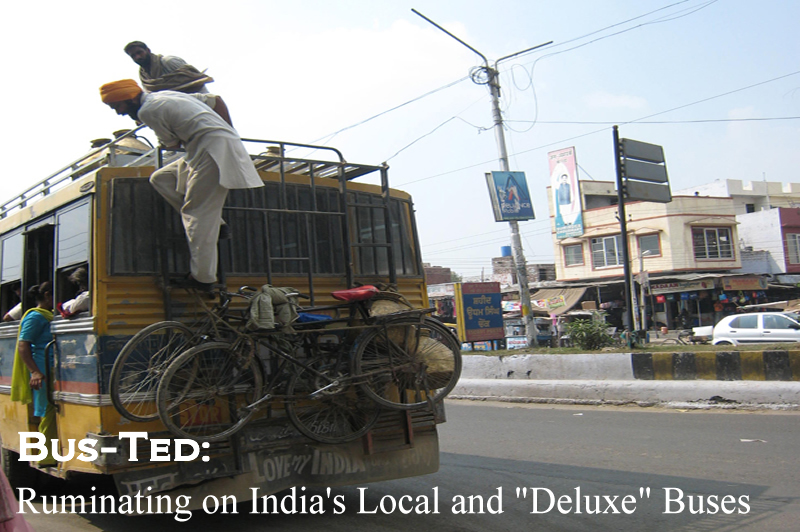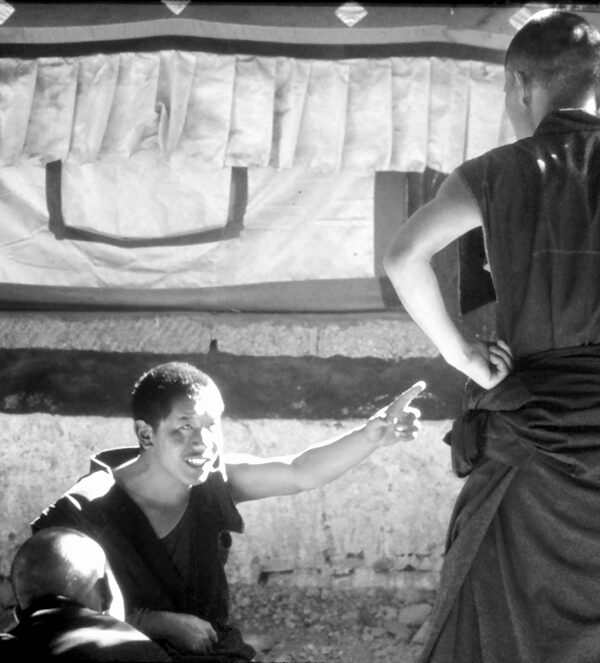Check out the video of our visit to the Karni Mata “Rat” Temple, home to 20,000 rats in Deshnoke, near Bikaner, Rajasthan in India. The rats are believed to be incarnations of tribesmen of the aesthetic Karni Mata (an incarnation…
Video: Kashmiri Papier Mache
It’s the Punjabi Cheese Man at Mandi Mania at the Mohali Farmer’s Market!
Lazy Spirituality: Gurdwaras, Gompas, and Temples . . . Oh My!
For someone who says she isn’t religious, I’ve sure visited a lot of temples, gurdwaras and even Buddhist gompas in the past month. And despite my frequent protest against the cult of religion (don’t get me started!), it’s been a strangely moving experience. Maybe India’s spirituality is rubbing off on me. Maybe I fancy myself writing a profound memoir of faith a la Elizabeth Gilbert’s Eat, Pray, Love (which I just finished reading and highly recommend). Or maybe I’m just at that place in my life where I feel the desire to reach out–both in need and in thanks. All I know is this: on this trip, there is definitely something heavy on my mind for which I am seeking guidance, solace and comfort, both for myself and for those I love. Perhaps it’s this turning point I’m facing that is causing this reaction.
When Navdeep and I first met, he’d talk often about the Sikh spirituality, what it meant to him growing up, what it means to him now. To him, Sikhism is almost more of a cultural calling than a religion. It has such a spirited and sacrificial history, you can’t help but be moved by it, especially while standing in one of the many monumental gurudwaras, like the one in Tarn Taran or especially the Golden Temple.
But growing up for me, it was different. We were raised what I call “supposedly Hindu.” Along with the all-American Christmas trees and Easter egg hunts, we tied rakhis and left all the lights on during Diwali, we occasionally dressed up and went to the local temple, we had Sunday morning halwa as prasad. But when I asked questions about why Ram did this (especially regarding the Sita situation) or Shiva did that, I rarely got back more than a shrug. We went through the motions of religion without really feeling connected to its meaning or power. I was bored to tears in the manditory survey of Eastern religions class at Rutgers, which was so cut and dry, completely just the facts ma’am. And that, along with all the news about Jihad this or genocide that, left me so utterly disillusioned with the concept of religion that I became dismissive about it. Religion is a crutch for the weak and an excuse for the angry to pick up arms and kill others. I didn’t need any of that.
So why have Navdeep and I been popping our heads into endless temples, gurudwaras and other places of worship? Why are we here in McLeod Ganj, the spiritual and physical home of modern Buddhism? Why did we spend the day with a Tibetan monk? What is it we’re looking for anyway?
When Navdeep and I first met, he’d talk often about the Sikh spirituality, what it meant to him growing up, what it means to him now. To him, Sikhism is almost more of a cultural calling than a religion. It has such a spirited and sacrificial history, you can’t help but be moved by it, especially while standing in one of the many monumental gurudwaras, like the one in Tarn Taran or especially the Golden Temple.
Bus-Ted: Ruminating on India’s Local and “Deluxe” Buses
When Navdeep repeatedly warned me about the uber-bumpy buses we’d be taking on this trip, I didn’t really take him seriously. After all, I was used to dealing with the horrors of New Jersey Transit and Greyhound. Not to mention the fact that I once took one of those video-buses that play old, scratchy Bollywood flicks at eardrum-blasting levels the whole ride. It didn’t seem so bad. I was shoved out of my false sense of security by our first “Semi-Deluxe” bus ride, from Chandigarh to Malout.
Accidentally Finding Spirituality in India: The Golden Temple and Beyond
It’s a very strange feeling being back in India as a traveler again, but this time as a couple. It’s difficult not to think about our own spirituality when religion is everywhere, from impromptu Sufi music being sung in the park, or masjids, gompas, mandirs, and gurdwaras rooted in history that resonate deeply.






